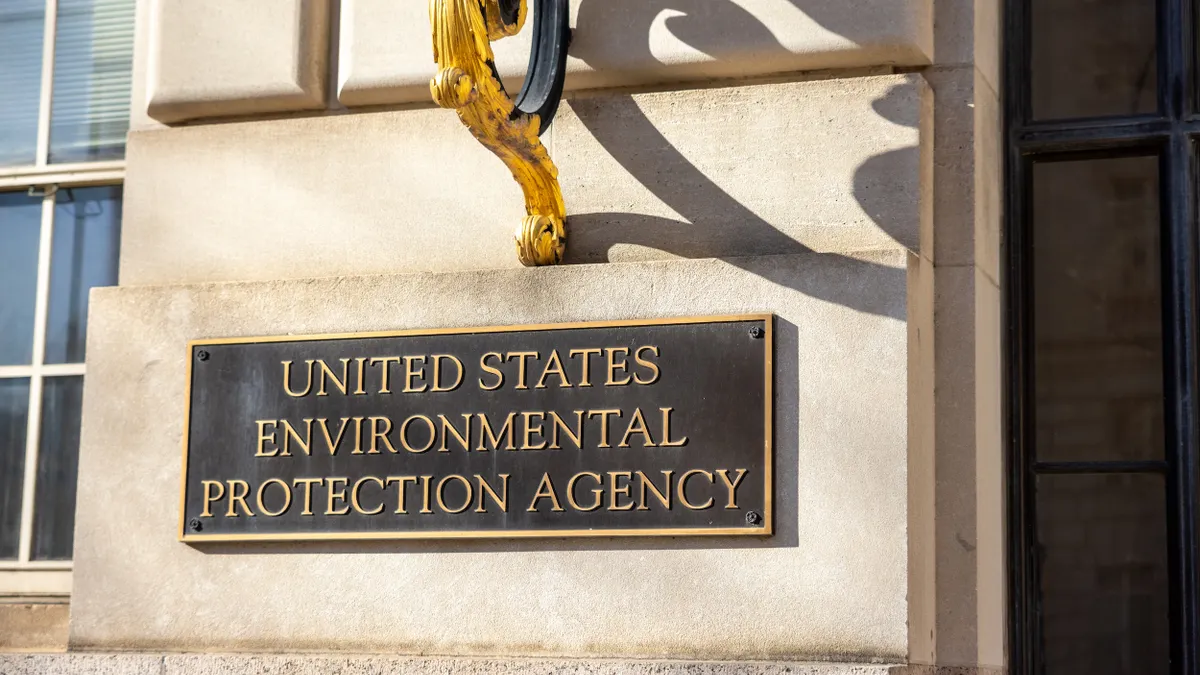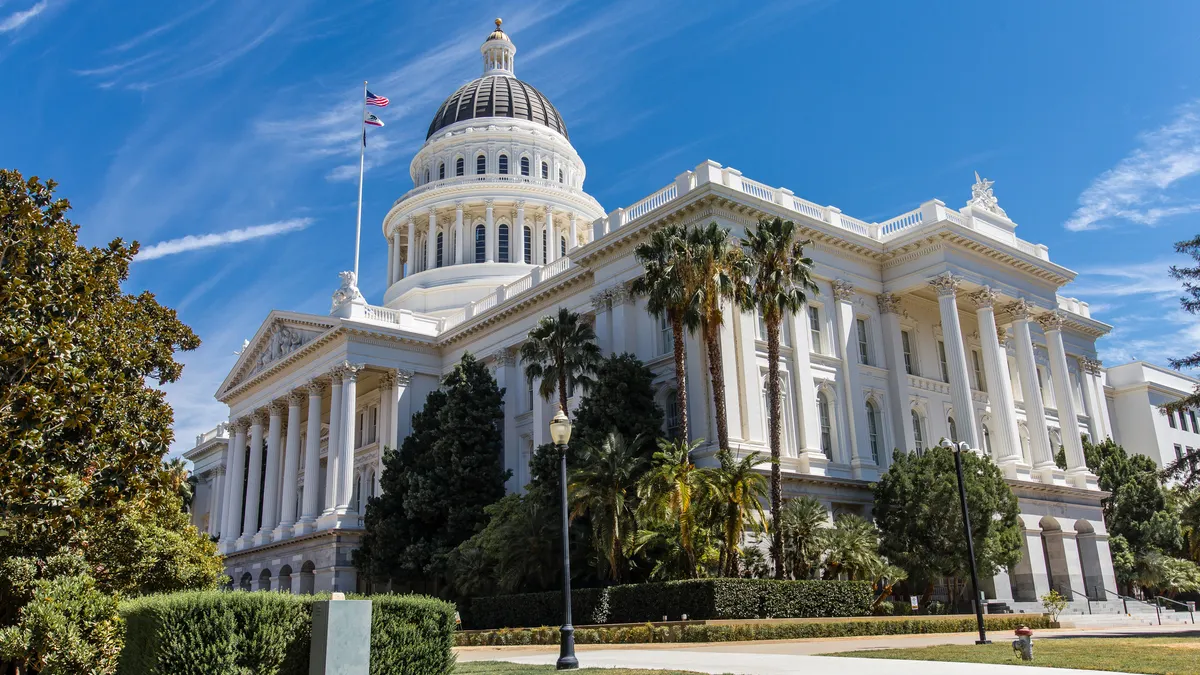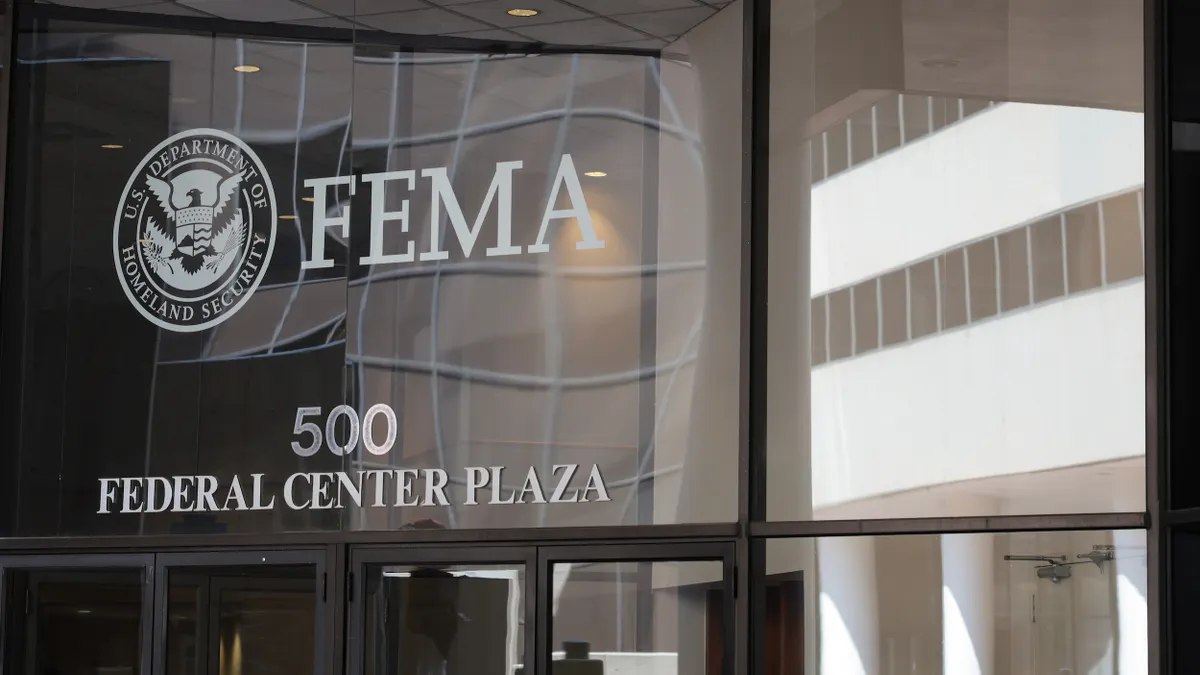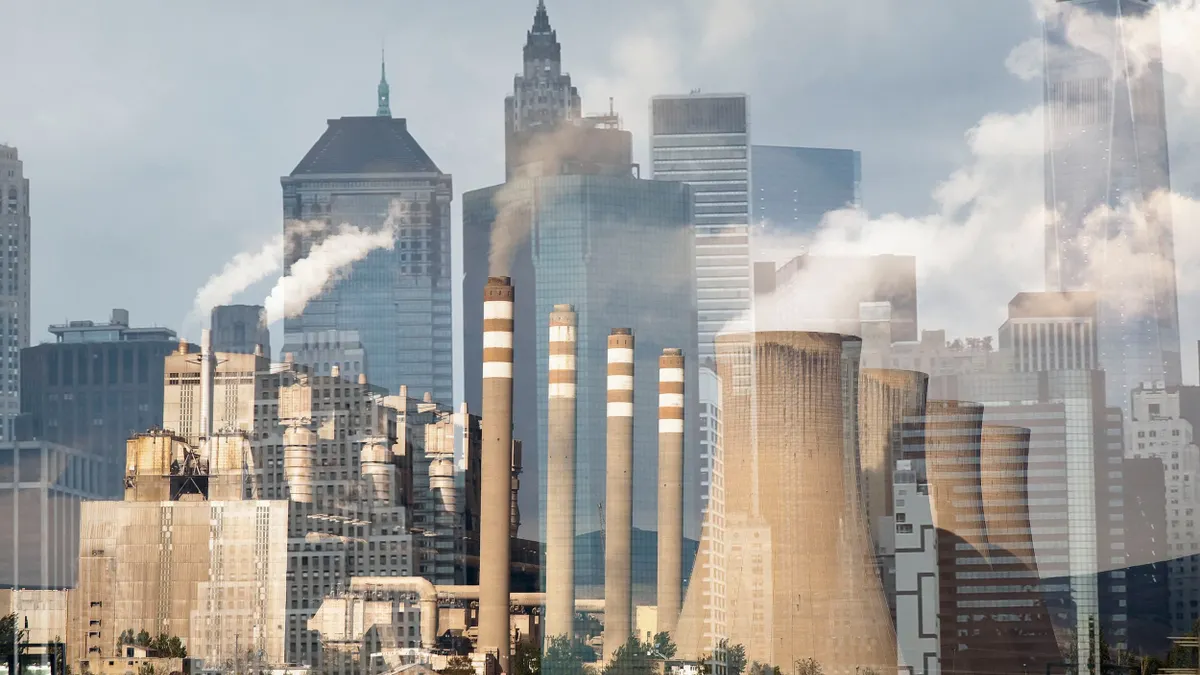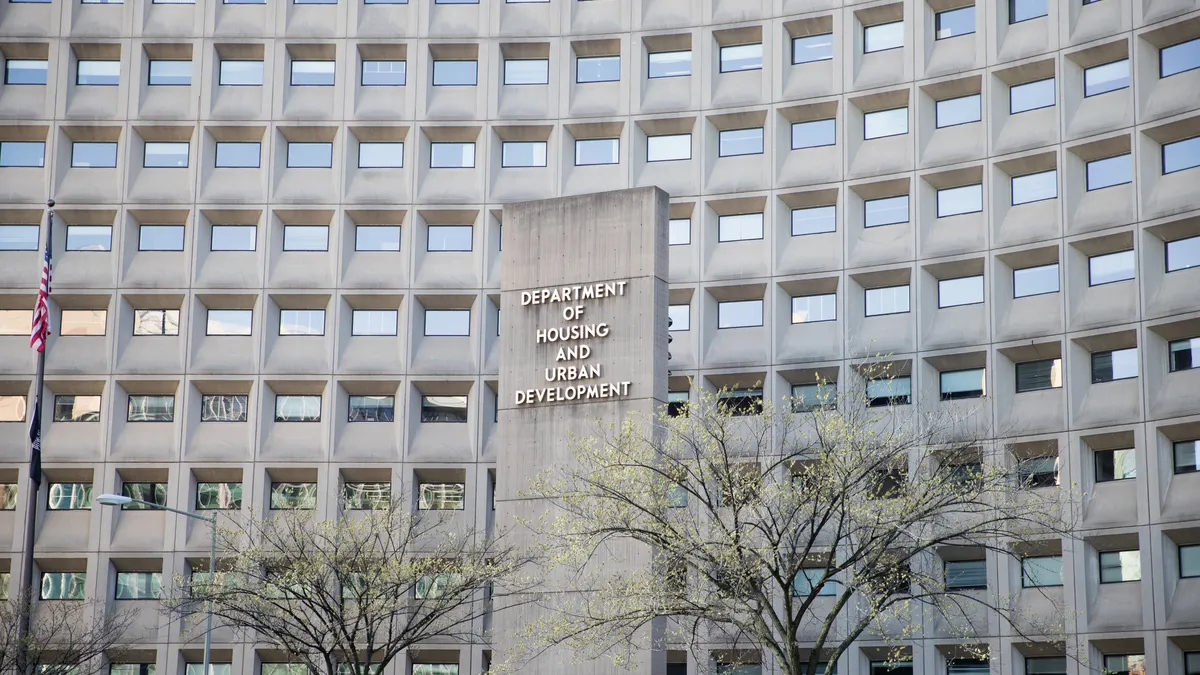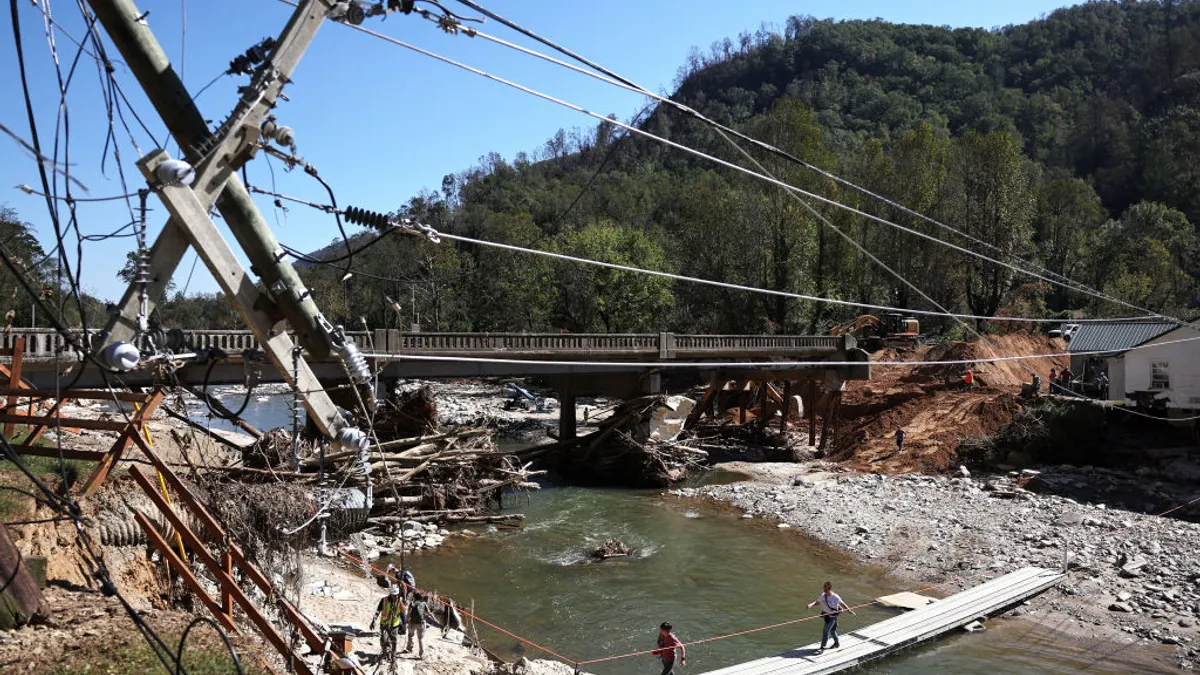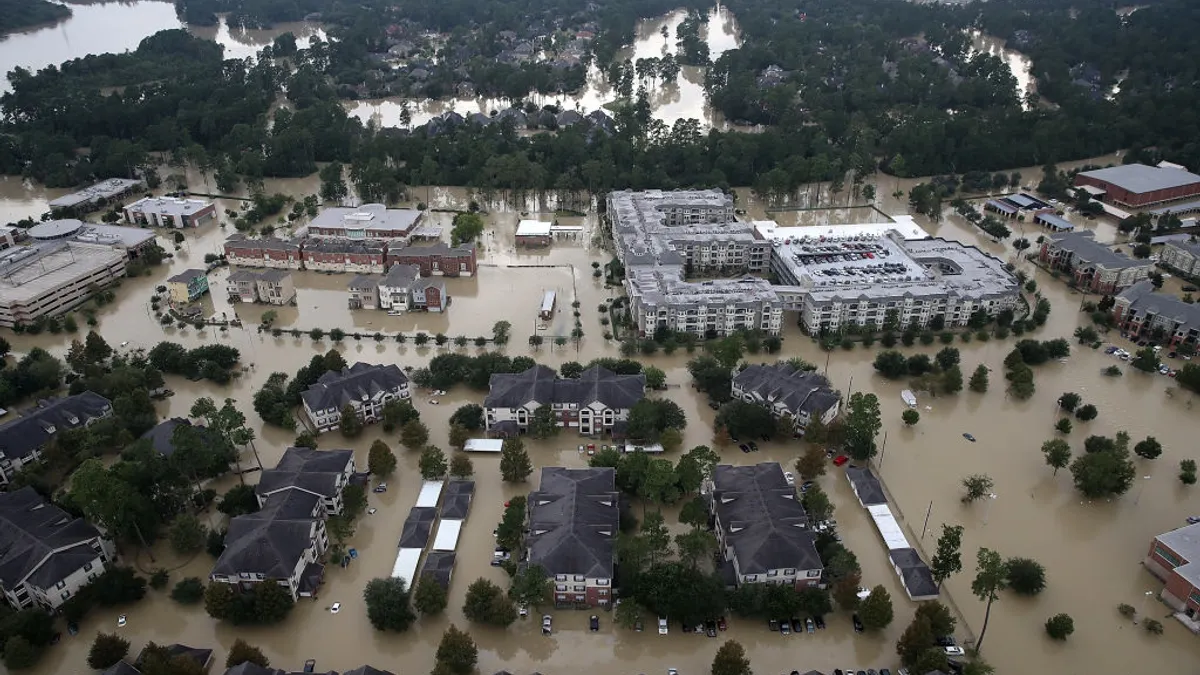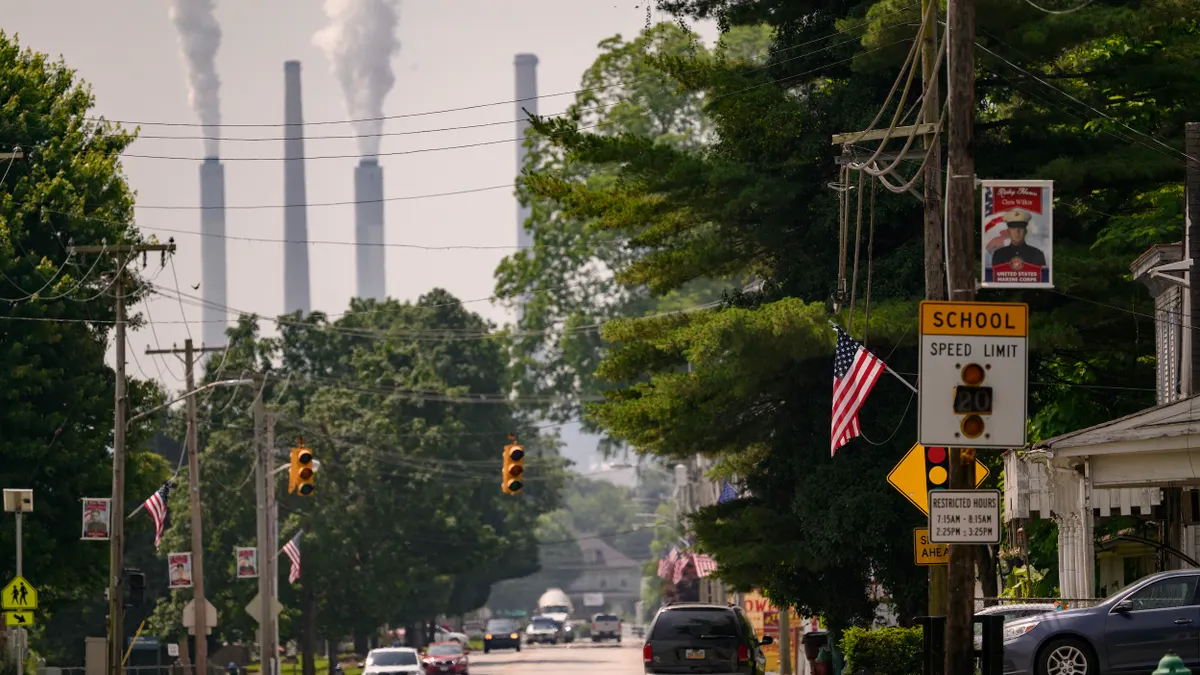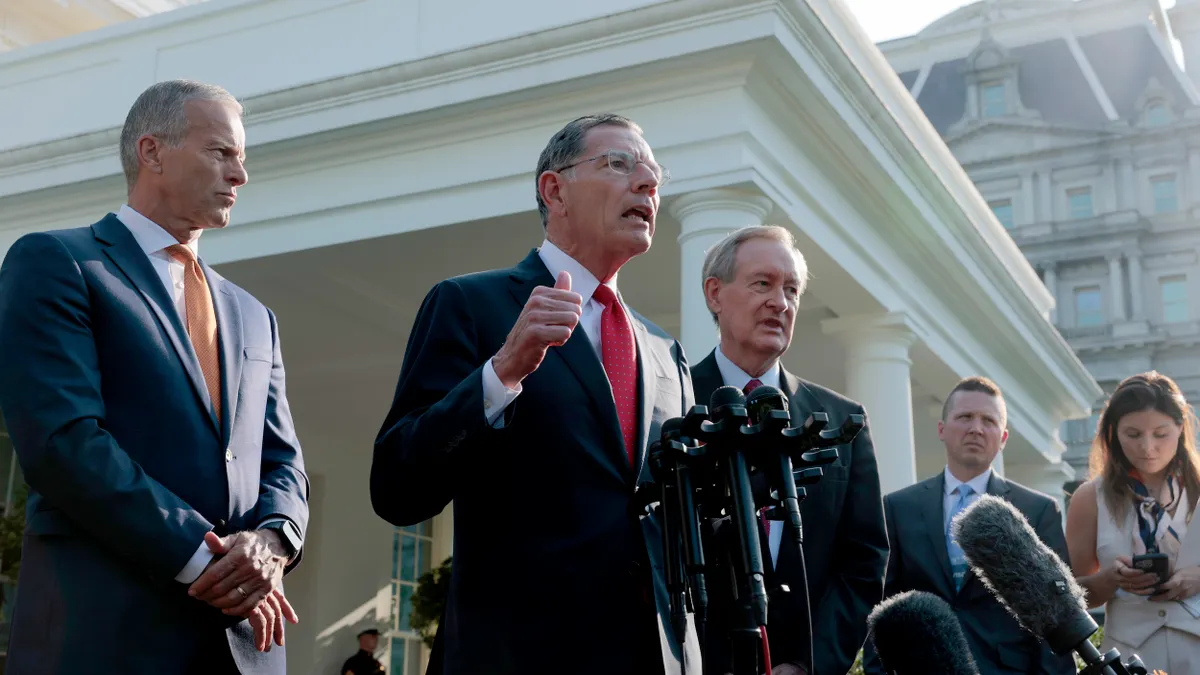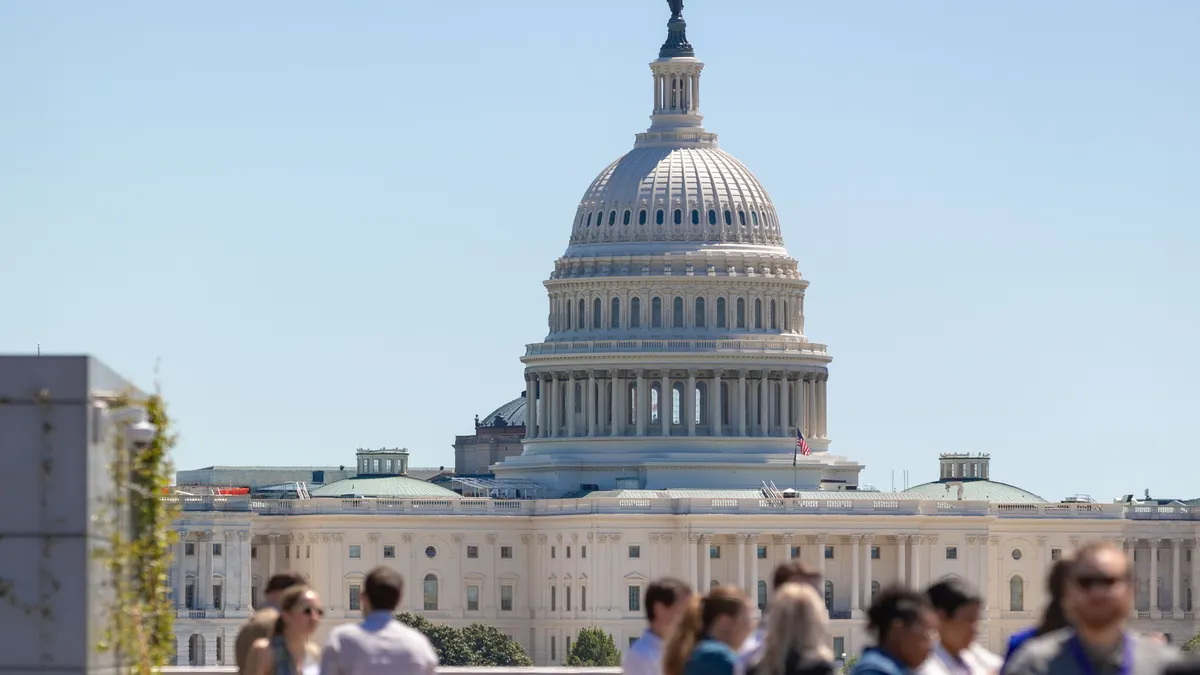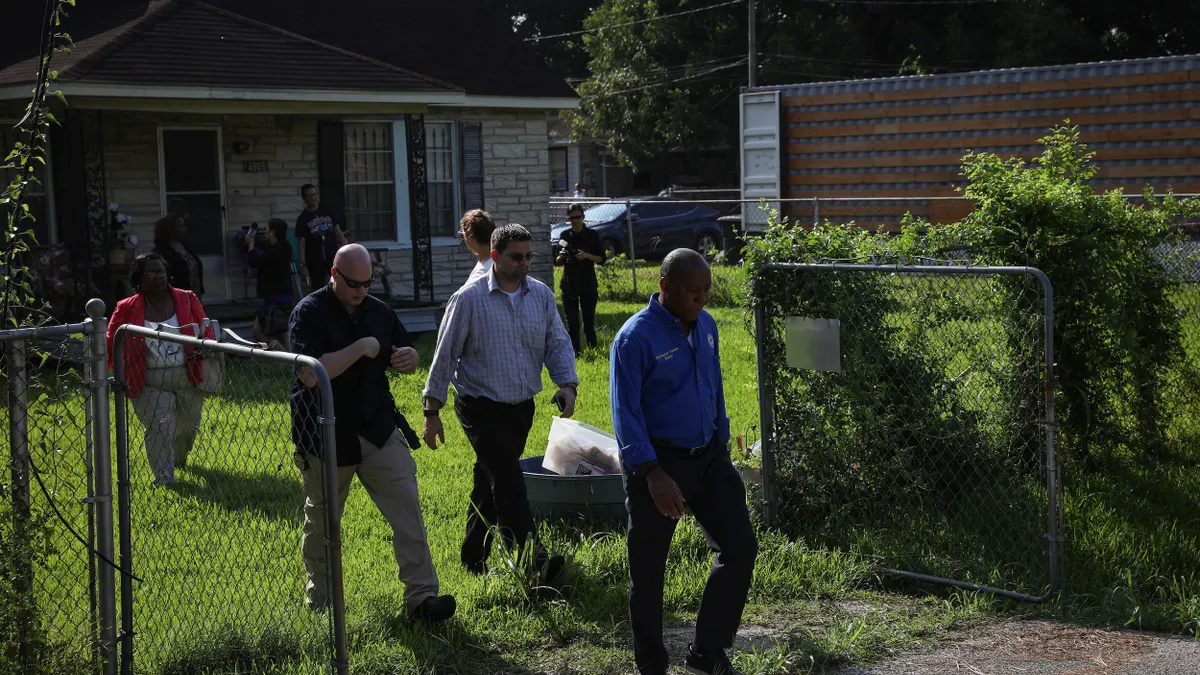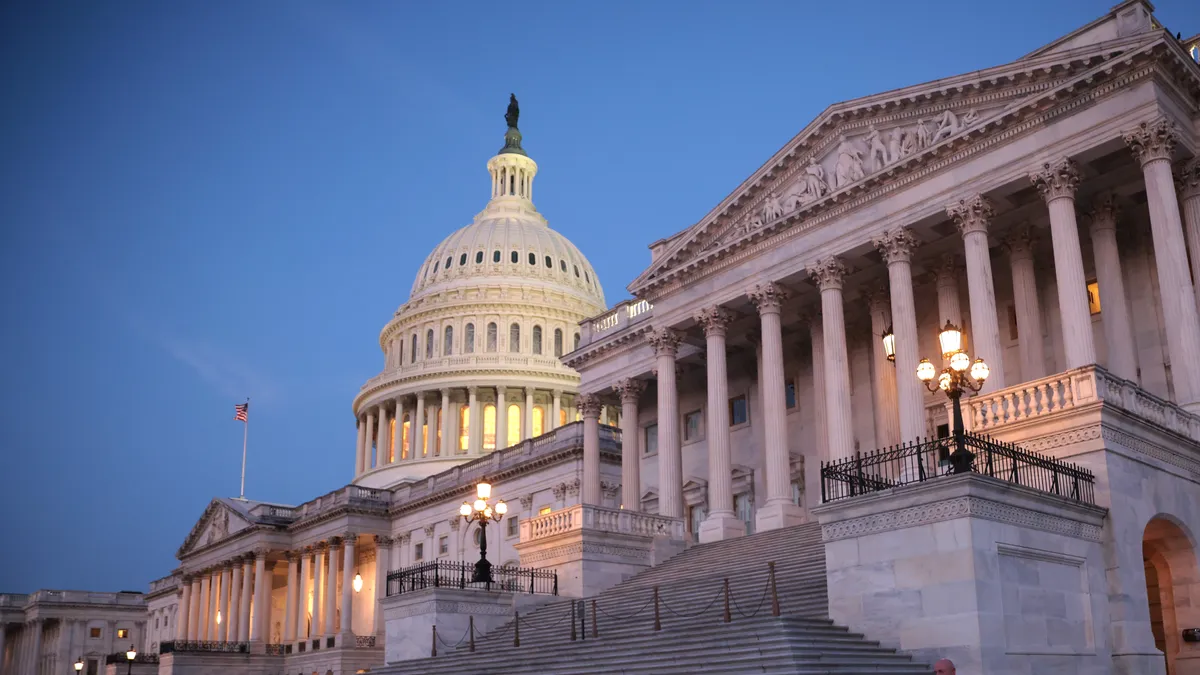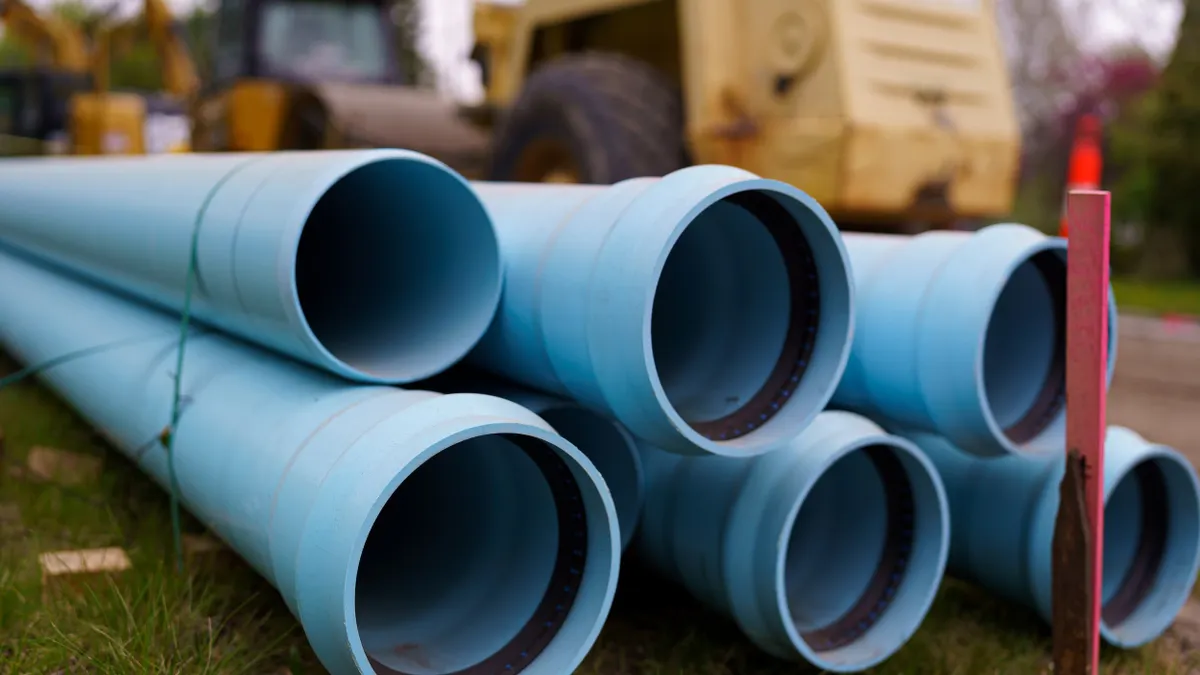Climate & Resilience
-
Cities sue Trump administration over termination of climate justice grants
Local governments say the EPA’s blanket cancellation of equity-related funding jeopardizes climate resilience efforts, air quality monitoring, flood mitigation and tree planting.
By Robyn Griggs Lawrence • July 11, 2025 -
Sponsored by TomTom
[Podcast] Key trends in urban mobility transformation
In this podcast series, explore trending topics related to the larger theme of urban mobility transformation challenges and opportunities.
By Smart Cities Dive's studioID • Updated July 10, 2025 -
 Explore the Trendline➔
Explore the Trendline➔
 jamesteohart via Getty Images
jamesteohart via Getty Images Trendline
TrendlineTop 5 stories from Smart Cities Dive
From worsening climate change to a shifting transportation landscape and the housing affordability crisis, cities have their work cut out for them.
By Smart Cities Dive staff -
California walks back environmental law for housing, high-speed rail
The changes to the California Environmental Quality Act could greatly speed up the issuance of building permits.
By Matthew Thibault • July 8, 2025 -
Cities can decarbonize buildings while cutting costs, new road map says
The guide from Climate Mayors and Veolia aims to help cities tackle one of their biggest greenhouse gas emissions challenges, even as federal support for energy efficiency and decarbonization shrinks.
By Robyn Griggs Lawrence • July 7, 2025 -

 Retrieved from New York State Energy Research & Development Authority on June 26, 2025
Retrieved from New York State Energy Research & Development Authority on June 26, 2025
New York offering up to $750K for facility decarbonization projects
The Large-Scale Thermal program is accepting applications through July 31 for heating, cooling and hot water systems in single buildings of at least 100,000 square feet or campuses of 250,000 square feet and up.
By Brian Martucci • June 30, 2025 -
As FEMA shrinks, cities face rising burdens — and risks
The backbone of emergency management is under threat, former federal officials say. Small towns may be the first to feel the effects.
By Robyn Griggs Lawrence • Updated June 24, 2025 -
US, global cities tout emissions reductions
Local U.S. officials say they’re driving emissions goals from the ground up since the Trump administration’s withdrawal from key international climate events and agreements.
By Robyn Griggs Lawrence • June 23, 2025 -
HUD green retrofit grant recipients in limbo after funding upheaval
While HUD’s Green and Resilient Retrofit Program gave out almost 270 awards, only 20 projects received funding before it was halted, according to an attorney.
By Mary Salmonsen • June 23, 2025 -
Targeted investment, tech can sustain critical infrastructure
To help communities bounce back after disaster, jurisdictions must identify gaps in lifeline systems and cost-effective ways to mend them, panelists at the Building Innovation 2025 conference said.
By Julie Strupp • June 18, 2025 -
New tool maps urban heat disparities block by block
American Forests’ shade map reveals a stark lack of shade in hundreds of U.S. cities, giving local leaders a powerful tool to prioritize cooling investments where they matter most.
By Robyn Griggs Lawrence • June 18, 2025 -
Opinion
New building codes aim to provide vital flood protection
The updated standards mark a major shift in approach for design and construction in flood hazard areas, according to a floodplain manager.
By Tom Little • June 16, 2025 -
New AI tool helps cities respond to shrinking urban canopy
The open-source model helps cities monitor vegetation loss in real time and plan smarter greenery investments based on population density and vulnerability.
By Robyn Griggs Lawrence • June 16, 2025 -
City leaders blast EPA’s rollback of power plant pollution standards
The Environmental Protection Agency says power plant emissions regulations imperil the grid. Local leaders and clean energy advocates say repealing them imperils residents.
By Robyn Griggs Lawrence • June 13, 2025 -
Local leaders warn U.S. Senate not to pull the plug on clean energy credits
Bipartisan coalition says proposed cuts in the One Big Beautiful Bill Act would threaten jobs and local investments, raise energy costs and create economic uncertainty.
By Robyn Griggs Lawrence • June 6, 2025 -
New York bets big on green economy with Brooklyn climate innovation hub
NYC and LA nonprofits expect BATWorks to nurture 150 cleantech startups, generate $2.6B in economic impact and create more than 600 green jobs.
By Danielle McLean • June 5, 2025 -
Is your city prepared to weather the storm without FEMA?
Local officials must act now to build emergency networks for community-based disaster resilience as federal support evaporates, experts say.
By Robyn Griggs Lawrence • June 4, 2025 -
Q&A
How Washington, D.C.’s first climate week came together
Behind the scenes with DC Climate Week co-founders C’pher Gresham and Vid Mićević on how they, and over 200 volunteers, built toward the first week-long climate event in the nation’s capital.
By Lamar Johnson • June 2, 2025 -
AI, drones, private radar fill gaps from National Weather Service cuts
Private tech companies are stepping in to support local officials on the front lines of weather emergencies as federal offices struggle to stay staffed.
By Robyn Griggs Lawrence • May 30, 2025 -
Trump ends California vehicle emissions waivers
Clean vehicle advocates say air quality and public health will suffer; auto and petroleum industry lobbyists supported the move to end California’s authority under the Clean Air Act.
By Dan Zukowski • Updated June 13, 2025 -
With AI, post-tornado assessments could be ‘near-instantaneous’
Texas A&M researchers have developed a model that delivers comprehensive damage maps and recovery forecasts within hours of a storm.
By Robyn Griggs Lawrence • May 28, 2025 -
Federal grantees reckon with loss of ‘generational’ recycling funding under Trump
The administration has canceled or limited grant awardees’ ability to access federal funding, changing how plastics and organics recyclers view the federal government.
By Jacob Wallace • May 22, 2025 -
Reimagining ‘managed retreat’ in a new reality
As federal disaster support evaporates and climate risks intensify, officials and experts say cities should lead with community-centered, forward-looking solutions.
By Robyn Griggs Lawrence • May 20, 2025 -
Republican budget squeezes out of House committee, but deeper IRA cuts could come
Deficit hawks voted to advance the legislation for now but said they negotiated for more cuts to clean energy incentives.
By Diana DiGangi • May 20, 2025 -
Thermal energy networks need municipal participation: report
Cities and other entities can develop neighborhood-scale thermal networks to lower greenhouse gas emissions, clean energy consultants say.
By Robyn Griggs Lawrence • May 16, 2025 -
16 cities and counties fast-track sustainability through national initiative
The U.S. Green Building Council LEED for Cities program helps local leaders embed climate resilience and green infrastructure into city planning.
By Robyn Griggs Lawrence • May 14, 2025

